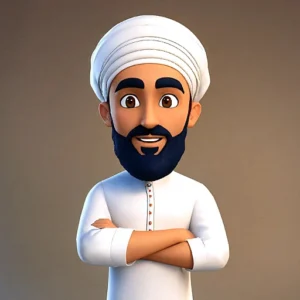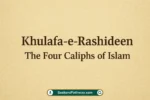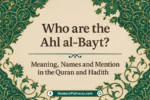A Celebration Rooted in Worship
Eid-ul-Fitr is a day of thankfulness, togetherness, and divine mercy. It is more than just a day of celebration; it is worship and the reward for believers’ actions throughout the month of Ramadan.
The Messenger of Allah ﷺ said:
“The fasting person has two moments of joy: one at the time of breaking his fast, and the other when he meets his Lord.”
(Sahih al-Bukhari)
That moment of joy is Eid-ul-Fitr, a moment where we celebrate spiritual achievement and Allah’s forgiveness.

What is Eid-ul-Fitr?
The word “Eid” means “festival” or “recurring happiness,” and “Fitr” means “breaking the fast.” Hence, Eid-ul-Fitr is known as the Festival of Breaking the Fast and is celebrated on the first day of Shawwal after the month of Ramadan.
It is a day to:
- Thank Allah for giving you the strength to complete Ramadan.
- Celebrate with your family and community.
- Do not forget the needy.
- Rediscover your faith through prayer, giving, and joy.
Eid Prayer: How to Perform It?
1. Is Eid Salah Fard (Obligatory)?
Eid prayer is Wajib (obligatory) according to Hanafi scholars, and it is Sunnah Mu’akkadah according to all other schools. This prayer is performed in congregation and has a great reward.
2. When Is It Performed?
Eid prayer is performed after sunrise, ie, 15–20 minutes after sunrise and before Zawal (midday). It was performed in large crowds and is best to be on an open area (Musalla), but it can also be prayed in mosques.
3. Number of Rakats in Eid-ul-Fitr Prayer
The prayer of Eid-ul-Fitr is 2 Rakats with extra Takbirs (Allahu Akbar).
How to Pray Eid-ul-Fitr Salah:
- 1st Rakat: Takbir al-Ihram (saying Allahu Akbar once to begin).
- Then perform 3 more Takbirs (raising hands each time).
- After the third takbir, listen to Surah Al-Fatiha and another Surah.
- Perform the rakat as normal.
- 2nd Rakat: Stand up and recite Surah Al-Fatiha and another Surah.
- Then consists of 3 more takbirs, then rukoo.
- Conclude the prayer as normal.
Note: There is no adhan or iqamah for Eid prayer.
The Khutbah (Sermon)
The Khutbah after Eid prayer. Although the Khutbah is not obligatory (unlike Jumu’ah), it is mustahabb to sit and listen to it, as the Prophet ﷺ used to do and commanded that it be done.
The Khutbah usually includes:
- Praise of Allah.
- Encouragement to give Zakat al-Fitr.
- Reminders of the lessons of Ramadan.
- Du’as for the Ummah.
Sunnahs and Etiquettes of Eid
Doing the Sunnah makes Eid beautiful & you get more reward:
- Taking ghusl (ritual bath) before going for prayer.
- Dressed in your finest modest garments, white, if possible.
- Eating dates (in odd numbers) before Eid prayer (for Eid-ul-Fitr only).
- Saying the Takbir while heading towards prayer:
Allahu Akbar, Allahu Akbar, La ilaha illallahu wallahu Akbar… - Returning from the site of the prayer via a different route.
- Greeting other Muslims with joy & du’a: Eid Mubarak, Taqabbalallahu minna wa minkum.
The Spirit of Eid: Not Just Celebration, But Compassion
Eid is a time of rejoicing, but also a time for sharing your joy. The day the rich offer Zakat al-Fitr, when communities feed the poor, is the day when families come together.
Celebrate, but remember:
- No excess and no waste.
- No neglecting Salah.
- No un-Islamic acts in the name of festivity.
It is a time to embody the beauty of Islam in your smile, your sharing, and your sincerity.
Conclusion: A New Beginning
It is not the end of Ramadan; Eid-ul-Fitr opens the doors to a new chapter. A time during which you take the light of fasting and prayer into your everyday life. Reminder of your reward, tomorrow is not only the joy in this life, it is the mercy of the Hereafter.
Let us welcome this day with grateful hearts and clean souls and open hands for ourselves, for our families, and for the world in need. Ameen.










